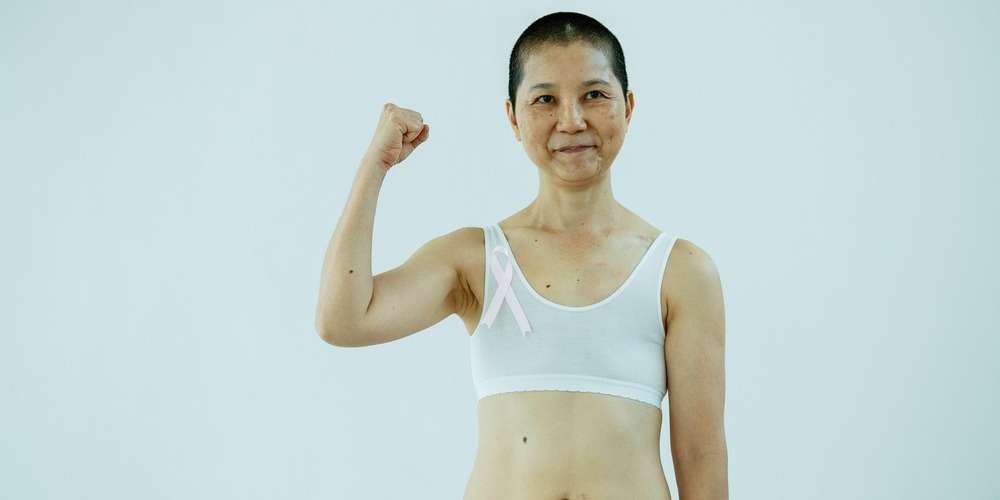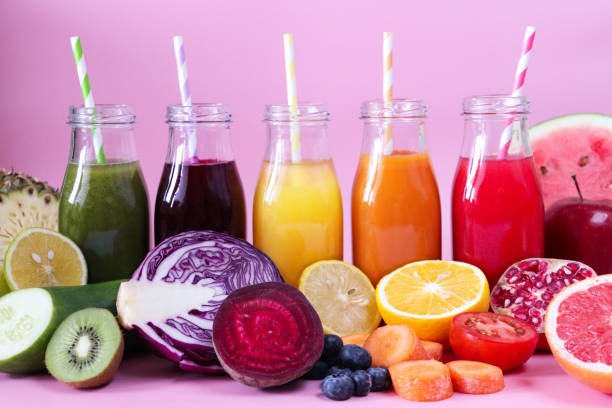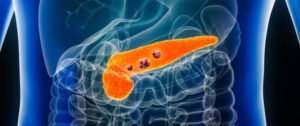
What Fruits Should Not be Eaten to Prevent Breast Cancer? There is a Difference Between Chemotherapy and Surgery! 3 Taboos on Cancer Diet
Breast cancer is the most common cancer among women. Every year, 10,000 women suffer from breast cancer, and more than 2,000 women die from breast cancer. Intake of appropriate amounts of vegetables and fruits can help reduce the risk of breast cancer, but breast cancer patients need to avoid different types of fruits at different stages of treatment.
We introduce to you the three major taboos on eating fruits after suffering from breast cancer, the fruits that are recommended to be eaten and not eaten to prevent breast cancer, and the three dangerous fruits that should be avoided respectively for prevention, chemotherapy and surgery.
Breast cancer diet: Eating more fruits and vegetables is the key to preventing and reducing mortality!
- Eating more fruits and vegetables can help prevent breast cancer
Studies have found that women who eat more fruits and vegetables have a 32-50% lower risk of breast cancer than women who eat less fruits and vegetables. - Eating more fruits and vegetables may reduce breast cancer mortality
Mariam., a public health epidemiology researcher at Harvard University. Maryam Farvid published a prospective study stating that an analysis of nearly 9,000 breast cancer patients tracked for 30 years through a food frequency questionnaire found that higher intakes of vegetables and fruits were inversely related to mortality. ; In particular, consuming 2 servings of blueberries per week can reduce breast cancer mortality by 25% and all-cause mortality by 17%.
The study also pointed out that higher intakes of green leafy vegetables and cruciferous vegetables such as broccoli, fruits and vegetables with higher vitamin C content, and vegetables with higher beta carotene are also associated with lower mortality in breast cancer patients.

There are many dietary taboos for breast cancer! 3 taboos to avoid when eating fruits
- Fruits that are not in season and are eaten with the skin on (easy to get moldy and have pesticide residues
Patients undergoing breast cancer surgery, chemotherapy or radiotherapy should choose seasonal fruits to avoid mold infection, and try to choose fruits that can be peeled to avoid eating residual pesticides.
- Fruits that can be peeled: citrus, lychees, pears, and apples should be washed first and then peeled.
- Fruits to be eaten with their skins: tomatoes and strawberries should be washed clean with a soft brush first.
- Fruits that can be peeled: citrus, lychees, pears, and apples should be washed first and then peeled.
- Low white blood cell count, eating raw fruits (low immunity)
When the white blood cell count is lower than 3,000, it is not advisable to eat raw fruits or drink freshly squeezed juice. You can choose packaged concentrated reduced juice to obtain the nutrition of the fruit. When the white blood cell count is above 3,400, you can choose fresh peeled fruits in the season. When eating, it should be washed and peeled before eating. It can also be scalded with hot water for disinfection. - Drink less fruit juices high in sugar
The study by Harvard University scholars mentioned above also pointed out that after suffering from breast cancer, large intake of fruit juice is associated with an increased risk of breast cancer death, especially apple juice and other fruit juices other than orange juice.
Maryam Farvid believes that the high sugar content in apple juice, compared with orange juice, is associated with poorer cancer prognosis and may be responsible for the increased risk of death, because cancer cells rely on large amounts of glucose to consume. Want to grow quickly.

Cancer diet: 3 types of fruits not recommended for patients with cancer
- During chemotherapy: Do not eat “acidic, hard” fruits
The side effects of chemotherapy include oral mucosal ulcers, which can easily cause oral pain, dry mouth and discomfort when eating. Therefore, it is recommended to eat less acidic fruits such as citrus and kiwi fruit to avoid irritation.
In addition, brittle and hard fruits such as apples can easily irritate wounds and mucous membranes, cause ulcers, and worsen dry mouth. They should also be avoided.
- Citrus: oranges, tangerines, grapefruits, sweet oranges, limes, grapefruits, lemons
- Kiwi
- Guava
- Apple
- Citrus: oranges, tangerines, grapefruits, sweet oranges, limes, grapefruits, lemons
- Targeted therapy: Don’t eat fruits with “drug interactions”
- Citrus fruits
Citrus fruits not only affect the absorption of chemotherapy drugs, but also increase the side effects of targeted drugs, immunosuppressants and other drugs.
The U.S. Food and Drug Administration points out that the CYP3A4 enzyme produced in the small intestine can help metabolize some drugs. However, fruits such as grapefruit can block the effect of CYP3A4, hindering drug metabolism and lengthening the stay time in the body, resulting in drug concentration. Too high will increase the incidence of side effects. - Grapefruit, grapefruit juice, lime and star fruit
The Ohio State University Cancer Research Center points out that when using the drug Ribociclib for targeted therapy, you should avoid eating or drinking grapefruit, grapefruit juice, lime or star fruit to avoid increasing the risk of side effects from the drug.
- Citrus fruits
- After surgery: Fruits you can’t eat
- Longan
- Litchi
- Mango
- Durian
- Cherry
- Kumquat
- Longan
Anti-cancer diet: 3 types of vegetables and fruits to prevent breast cancer
Tomatoes, grapes and green peppers
Korean clinical studies have shown that women who consume large amounts of tomatoes before menopause, as well as grapes and green peppers after menopause, can help reduce the risk of breast cancer.
Be careful about 2 kinds of fruits that increase the risk of breast cancer
- Avocado
Studies have found that women’s consumption of avocados is associated with an increased risk of breast cancer. However, another study on younger women found that eating avocados is not related to the development of breast cancer. Therefore, it is recommended that groups at high risk of breast cancer, such as those with a family history, those who are single, People who have had breast cancer in the side breast or ovarian cancer or endometrial cancer should avoid eating avocados regularly. - Grapefruit
Studies have pointed out that grapefruit may increase the risk of breast cancer in postmenopausal women. Eating more than 1/4 grapefruit per day will increase the chance of breast cancer by 30%.











